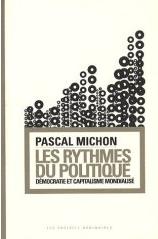P. Michon, Fragments d’inconnu. Pour une histoire du sujet, Paris, Le Cerf, 2010.
- La figure de l’individu, qui a dominé la philosophie et les sciences sociales au cours des trois dernières décennies, semble à bout de souffle. Partout, singuliers et collectifs cherchent à dépasser la simple adaptation au monde fluide imposé par le capitalisme mondialisé et à redevenir les agents de leur propre vie. Au nord comme au sud, un immense désir de subjectivation est en train de gagner nos sociétés.
Pourtant, la figure du sujet reste confuse. Longtemps identifiée à une entité naturelle, hors de l’histoire, elle pâtit aujourd’hui également des représentations, tout aussi néfastes, qui concluent de l’historicité radicale du sujet à sa relativité éthique et politique, voire à son inexistence.
Ce livre reprend, à la racine, la réflexion sur les relations entre sujet et histoire, en y réintroduisant une tradition oubliée, sinon refoulée par la philosophie : celle qui commence avec Humboldt, se poursuit chez Saussure, Benveniste et Meschonnic. En définissant le langage comme activité et comme mise en circulation de puissances poétiques, cette tradition fournit les bases d’une nouvelle anthropologie historique du sujet.
The figure of the individual, which has dominated philosophy and the social sciences for the last three decades, seems to be living its last hours. All around, singular and collective individuals are seeking to reach beyond mere adaptation to the fluid world imposed by global capitalism, to become once again the agents of their own existence. In the north as in the south, an immense desire for subjectivation is spreading through our societies.
Yet the figure of the subject remains indistinct. Long identified with a natural entity, beyond history, it also suffers today from equally damaging representations which derive from the radical historicity of the subject its ethical and political relativity, even its inexistence.
The aim of this book is to revisit the relations between subject and history, reintroducing a forgotten tradition (or perhaps repressed by philosophy) : that which begins with Humboldt, moves on with Saussure, Benveniste and Meschonnic. By defining language as an activity and the means of circulating poetic powers, this tradition provides the bases of a new historical anthropology of the subject.
- Pascal Michon est philosophe et historien. Ancien élève de l’École normale supérieure de Saint-Cloud, il a été directeur de programme au Collège international de philosophie.


